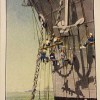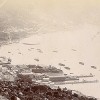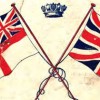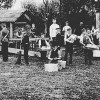It is an interesting question whether or not the men who joined the Royal Navy in the late nineteenth century knew of or imagined the time-consuming and monotonous aspects the job entailed. Consideration of sailor diaries reveals that one of the most common, and indeed, disliked tasks aboard ship, was painting the vessel, inside and […]






